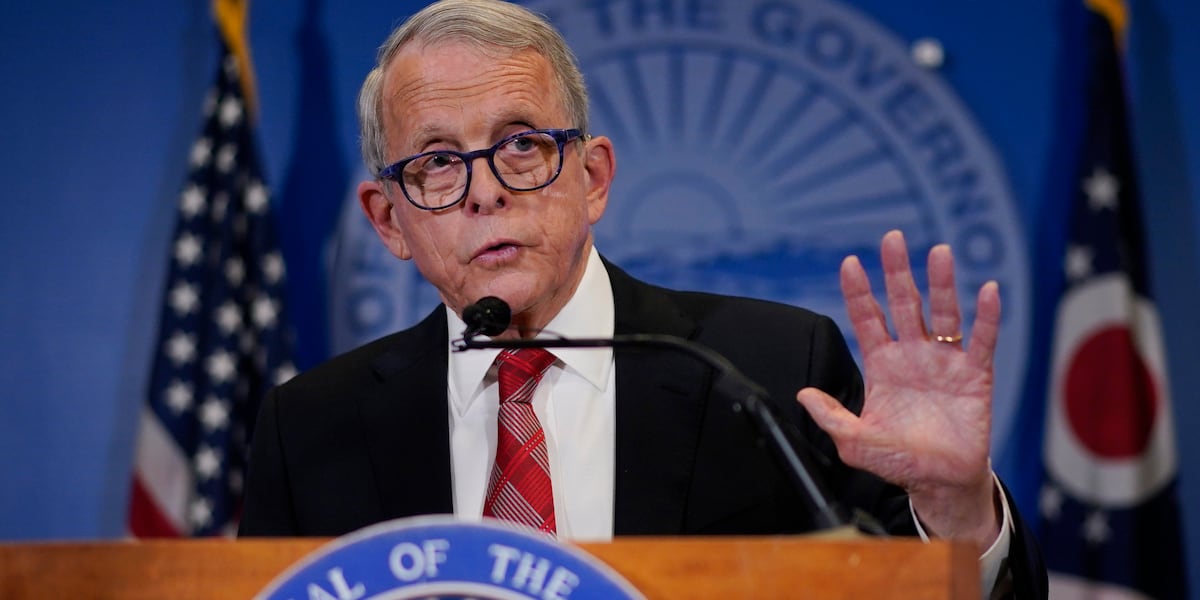
Columbus, Ohio (AP) – The Republican-controlled Ohio House has voted to overturn GOP Governor Mike DeWine’s veto. LGBTQ+ activists argue that DeWine’s veto of legislation banning gender-affirming care for minors and limiting the participation of transgender women and girls in sports teams could severely impact the lives of transgender youth in the state.
The override restricts mental health care for transgender individuals under the age of 18 and brings a ban on gender-affirming surgeries and hormone therapies closer to becoming law. The legislation also prohibits transgender girls and women from participating in youth sports at K–12 and college levels.
DeWine had recently stated that he vetoed the legislation to protect parents from government overreach in healthcare decisions.
The House voted along party lines to override the veto with a tally of 65-28. The Republican-majority Senate is expected to hold its own override vote on January 24.
Rep. Gary Click, a Republican Baptist pastor from Sandusky County and the bill’s sponsor, argued that the legislation protects children who cannot provide informed consent for such life-altering treatments. He hopes that the override and potential related legislation will encourage medical professionals and others who may be hesitant to speak out against gender-affirming treatment for adolescents.
Rep. Beth Liston, a Democrat and physician from the Columbus area, expressed her disbelief in the room’s decision to override the veto and enact these bans, particularly since most lawmakers are not medical or mental health professionals. Liston praised the LGBTQ+ community and suggested that public opinion could influence these prohibitions, citing recent Ohio voter initiatives on marijuana legalization and abortion rights.
Several states with laws restricting or prohibiting gender-affirming healthcare for transgender minors are facing legal challenges. A federal judge overturned Arkansas’s primary law banning such treatment, stating that it violated the rights of transgender youth and their families. Legal decisions on these laws vary across states, with some being temporarily blocked while others are upheld.
Gender-affirming care has been available in the US for over a decade and is supported by major health organizations.
The Biden administration has requested a halt to such outright bans, with a final decision expected in March after two delays and minimal opposition. At least 20 states have passed some form of legislation allowing transgender athletes to participate in K–12 and college sports teams. Blanket bans like those proposed could potentially violate Title IX, the landmark gender-equality law passed in 1972.
DeWine vetoed the bill on December 29 of last year and, on January 5, signed an executive order along with proposed rules aimed at addressing some of the provisions covered by the law. Non-surgical gender-affirming treatment for minors, such as puberty blockers and hormone therapies, would still be allowed under this order.
While doctors claim that gender-affirming surgeries for minors are not taking place, the executive order prohibits them. DeWine’s proposed rules require comprehensive and lengthy mental health assessments before any treatments or surgeries, as well as a “therapeutic relationship” with healthcare teams for both transgender children and adults.
DeWine’s departure from the status quo, which he has framed as a “pro-life” decision, has drawn criticism from fellow Republicans, including former President Donald Trump, and traditional Christian organizations. Trump, in a Truth Social post, accused DeWine of “falling to the radical left” and expressed his disapproval.
Lt. Gov. Jon Husted, who is eyeing a run for governor in 2026, voiced support for the bans on social media and hoped for swift passage of the legislation less than 24 hours before DeWine’s veto.
Democrats, transgender families, and LGBTQ+ advocates are opposing both the veto and DeWine’s proposals. Potential legal challenges may be explored after the expected Senate override.
Equality Ohio, an organization working to protect LGBTQ+ rights, suggests that DeWine’s proposals could have broader implications for the transgender community, stating that “the proposed rules ultimately change how Ohio health systems operate and disrupt care for existing patients, including adults.”
The Associated Press/Report for America Statehouse News Initiative employs Samantha Hendrickson as a regiment member. A volunteer national service program called Report for America invites journalists to covertly cover stories in neighborhood newspapers.
2024 Copyright The Associated Press All right are reserved.



